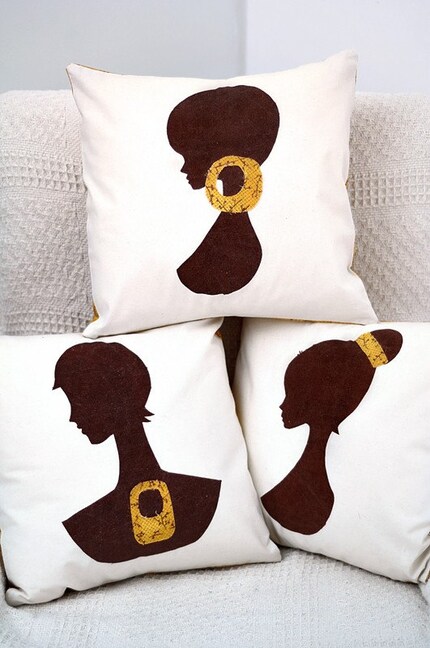I'm already tired of the coverage. The second full day after Michael Jackson's sudden and surprising death, and it is still a half-page headline on cnn.com. Today's "big news?" His body has been moved to the mortuary. Really? I mean, I understand the mourning period, and he was an amazingly talented man...but the media is keeping the coverage alive simply for ratings, that much is by now clear.
Saturday, June 27, 2009
It Don't Matter if You're Black or White...or Maybe It Does
Posted by
Beth
at
10:10 AM
2
comments
![]()
Labels: General Thoughts, Nothin' but Net
Saturday, June 20, 2009
An African is Not Just a Brown White Person

I got all excited just now poking around Etsy, "window" shopping for stuff for my as-yet-to-be-found new place, when I came across these pillows.
Posted by
Beth
at
3:38 PM
1 comments
![]()
Labels: Actively Advocating, General Thoughts, Pet Peeves
Friday, June 19, 2009
Why I Tweet

I am a Twitter user. I have an application on my computer to use it more easily than on the web. It's my second--the first one bit the dust when I accidentally turned off the power strip and therefore my computer in the middle of using it. I haven't figured out how to fix it, and so I let it go, though I miss some things it could do.
Posted by
Beth
at
3:25 PM
0
comments
![]()
Labels: General Thoughts, Nothin' but Net
Sunday, June 14, 2009
You know you're really "in" something when...
...you dream it. A Spanish teacher of mine used to get so excited when one of us would come in and say we'd dreamt in Spanish. That meant we were getting it, he'd tell us. Even if in class or doing homework, our conscious minds struggled to remember conjugations and vocab words, our sub-conscious was latching on to it and reproducing it while we slept.
Posted by
Beth
at
4:16 PM
0
comments
![]()
Labels: Artistic Endeavors, General Thoughts


